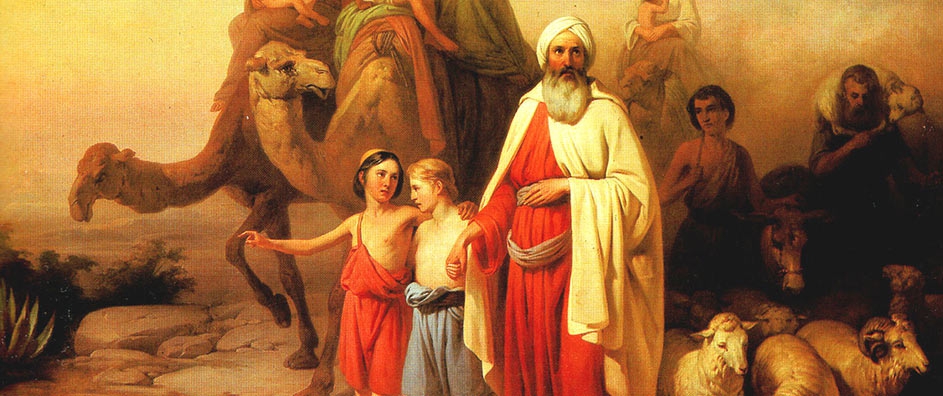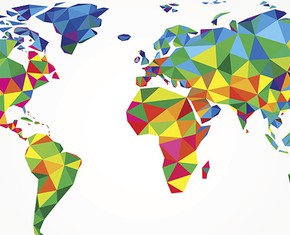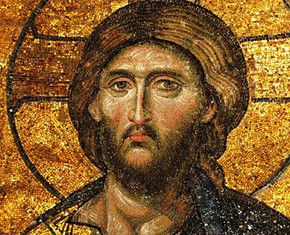The views expressed in our content reflect individual perspectives and do not represent the authoritative views of the Baha'i Faith.
Baha’u’llah too is a lineal descendant of Abraham, for Abraham had other sons besides Ishmael and Isaac who in those days emigrated to the regions of Persia and Afghanistan, and the Blessed Beauty [Baha’u’llah] is one of their descendants. – Abdu’l-Baha, Some Answered Questions, newly revised edition, p. 247.
This remarkable passage clearly states that Baha’u’llah, the prophet and founder of the Baha’i Faith, descended from Abraham via another son than Ishmael or Isaac.
Since, as far as we know, Ishmael and Isaac were Abraham’s only children by Hagar and Sarah, this seems to leave Keturah, the third wife of Abraham, as the mother of his other sons.
When I encountered this passage, I began researching Middle Eastern traditions about Keturah (Qanṭūrā) the third wife of Abraham, and found a number of interesting claims:
- The Book of the End by the esteemed 14th Century Qur’an commentator Isma’il ibn Kathir claims that the Turkish peoples are descended from Abraham via Keturah (Maktaba Dar-us-Salam, p. 120).
- Much earlier, al-Jahiz (776-868 CE) argued for the Abrahamic descent of Turkish people in his Manaqib al-Turk based upon a connection between Keturah and Khorasan—the land of Northeastern Iran and Afghanistan. Jacob Lassner (The Middle East Remembered: Forged Identities, Competing Narratives, Contested Spaces, p. 192.) argues that this connection helped to boost the status of Turkish people vis-à-vis other peoples of Islam.
- Muhammad ibn Jarir al-Tabari, a famous 10th Century Persian traditionalist and historian, narrates that some of the sons of Keturah were without a homeland until Abraham “taught them one of the names of God, and they used to use it to ask for water and for help. Some of them settled in Khurasan.” (The History of al-Ṭabari, Vol. II: Prophets and Patriarchs, p. 129).
- Muhammad Baqir al-Majlisi, in Bihar al-Anwar even records a connection between Keturah’s sons and China.
- An Armenian Jewish or Christian tradition states that Persians themselves are the descendants of Keturah the daughter of Japheth (Jacob Neusner, “The Jews in Pagan Armenia”, JAOS Vol. 84, No. 3, 1964; p. 236)
However, Abdu’l-Baha’s statement in Some Answered Questions does not imply that Keturah’s lineage is associated with any one particular culture or ethnicity today. Given the persistent diffusion of human heredity across geographical boundaries, it would be incredibly surprising if Baha’u’llah did not have the Lady Keturah as an ancestress, even apart from facts about where the first generations of her descendants settled. Still, it helps to know that the existing traditions broadly corroborate the Baha’i teachings on this subject.
All of that, however, doesn’t answer why Abdu’l-Baha emphasized Baha’u’llah’s descent from Abraham through a different line than Isaac or Ishmael.
The sons of Keturah create a bit of a scriptural loose end—their story left dangling in both the Bible and Islamic lore. This curious ambiguity is only heightened by the fact that cultures as diverse as Persians, Turkish people, Chinese people and Malaysians have been claimed, or claim themselves, as her descendants.
The Qur’an 2:124 states that God appointed Abraham as an Imam or Guide for humanity. Abraham asked that this be continued in his offspring, and God replied, “My covenant includeth not wrong-doers.” Shi‘i interpretation takes this passage as a tacit granting of Abraham’s request—that there would always be someone inspired and uncorrupt from Abraham’s lineage to act as a religious guide for humanity, although not necessarily from the Israelite line. The rejection of Jesus Christ by many of the Israelites coincided with a lapse in the Israelite line of prophets. Centuries later, divine guides appeared from the line of Ishmael, in the form of Muhammad and the Imams.
Tragically, history repeated itself in the tyrannical injustice perpetrated by the Shi’i clergy against the Bab, the Promised One of Islam, and his followers. Against this background, Abdu’l-Baha’s teaching that Baha’u’llah descended from Abraham and Keturah implies a new beginning, a fresh start—not the beginning of yet another “chosen lineage” or “chosen people,” but the dawn of humanity’s recognition that no matter whence we trace our lineage, we are all children of one God.
When we learn to prize this identity above all else, the long night of our species—in which humanity often became its own worst enemy—will be over, and our real day will begin.
Next: Are We Descendants of Our Mothers or Our Fathers?
You May Also Like
Comments

















the son ...of Mattathias, the son of Amos, the son of Nahum, the son of Esli, the son of Naggai,
the son of Maath, the son of Mattathias, the son of Semein, the son of Josech, the son of Joda,
the son of Joanan, the son of Rhesa, the son of Zerubbabel, the son of Shealtiel, the son of Neri,
the son of Melki, the son of Addi, the son of Cosam, the son of Elmadam, the son of Er,
the son of Joshua, the son of Eliezer, the son of Jorim, the son of Matthat, the son of Levi,
the son of Simeon, the son of Judah, the son of Joseph, the son of Jonam, the son of Eliakim,
the son of Melea, the son of Menna, the son of Mattatha, the son of Nathan, the son of David,
the son of Jesse, the son of Obed, the son of Boaz, the son of Salmon, the son of Nahshon,
the son of Amminadab, the son of Ram, the son of Hezron, the son of Perez, the son of Judah,
the son of Jacob, the son of Isaac, the son of Abraham, the son of Terah, the son of Nahor,
the son of Serug, the son of Reu, the son of Peleg, the son of Eber, the son of Shelah,
the son of Cainan, the son of Arphaxad, the son of Shem, the son of Noah, the son of Lamech,
the son of Methuselah, the son of Enoch, the son of Jared, the son of Mahalalel, the son of Kenan,
Lk 3:38 the son of Enosh, the son of Seth, the son of Adam, the son of God.
What matters most of all is that The Day of the LORD has come:
Mal 4:1 “Surely the day is coming; it will burn like a furnace. All the arrogant and every evildoer will be stubble, and that day that is coming will set them on fire, ” says the LORD Almighty. “Not a root or a branch will be left to them.
But for you who revere my name, the sun of righteousness will rise with healing in its wings. And you will go out and leap like calves released from the stall.
Then you will trample down the wicked; they will be ashes under the soles of your feet on the day when I do these things,” says the LORD Almighty.
“Remember the law of my servant Moses, the decrees and laws I gave him at Horeb for all Israel.
“See, I will send you the prophet Elijah before that great and dreadful day of the LORD comes.
Mal 4:6 He will turn the hearts of the fathers to their children, and the hearts of the children to their fathers; or else I will come and strike the land with a curse.”
The sons of Keturah create a bit of a scriptural loose end—their story left dangling in both the Bible and Islamic lore. This curious ambiguity is only heightened by the fact that cultures as diverse as Persians, Turkish people, Chinese people and Malaysians have been claimed, or claim themselves, as her descendants.
the only thing that comes to me about this is that it also opens the door for increased interest in the lineage of Krishna and Buddha. its ...just a feeling I have had for a long time, that they too can be traced back to Ketarah.
It deals with the genaology of ...various descendants of Abraham, not just Jesus. Actually, I found it by typing genealogy of Bahaullah into a search engine. It is the number one result. The chart is a claim of descent, but various links and lineages are unsourced and original to itself.